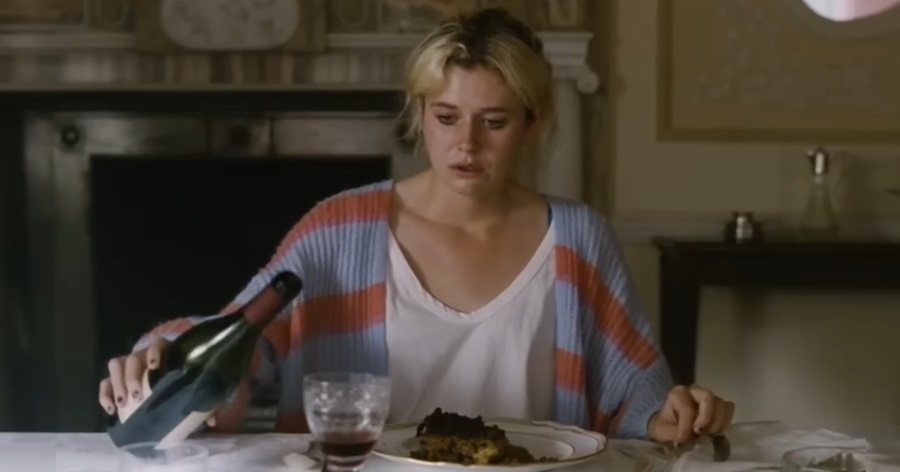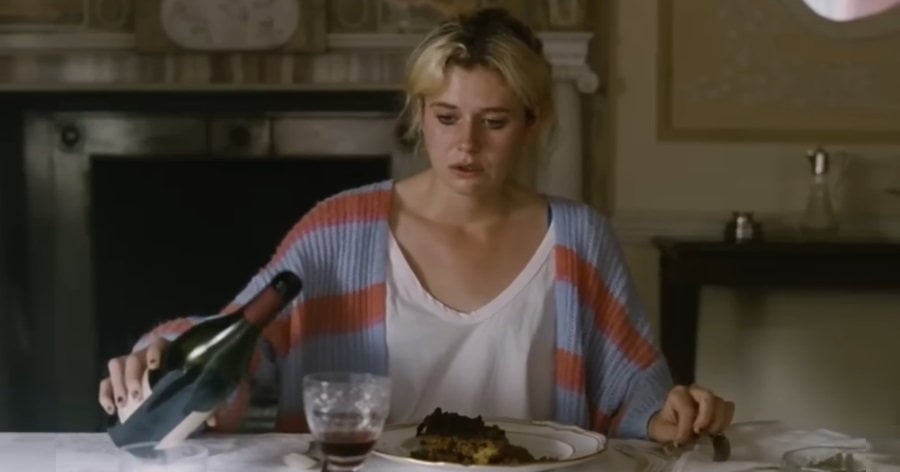Saltburn, directed by Emerald Fennell, is a psychological thriller that leaves audiences with more questions than answers as it wraps up its dark and twisted tale. The film’s ending is a subject of much debate, as it ties together themes of obsession, privilege, and revenge in a shocking conclusion. Let us dive into the film's final moments and break down what it all means.
• Saltburn follows Oliver Quick (Barry Keoghan), a socially awkward Oxford student who becomes infatuated with his charismatic classmate, Felix Catton (Jacob Elordi).
• Oliver is invited by Felix to spend the summer at his family’s luxurious estate, Saltburn, where Oliver becomes entangled in the lives of the wealthy and morally complex Catton family.
• The Catton family includes Felix’s glamorous yet distant mother, Elspeth Catton (Rosamund Pike), his charming but cold father, Sir James Catton (Richard E. Grant), his rebellious sister, Venetia Catton (Alison Oliver), and their cousin, Farleigh (Archie Madekwe).
• As Oliver’s obsession with Felix deepens, he begins manipulating the family, leading to a series of tragic events, including Felix’s death.
Plot Summary: The Dark Descent at Saltburn
Saltburn follows Oliver Quick (Barry Keoghan), an awkward and introverted Oxford student who feels alienated from his more privileged classmates. Oliver’s life takes a dramatic turn when he befriends Felix Catton (Jacob Elordi), a charismatic and wealthy classmate. Felix, who seems to enjoy Oliver’s admiration, invites him to spend the summer at his family’s sprawling estate, Saltburn.
The Catton family embodies the epitome of British aristocracy. Elspeth (Rosamund Pike), Felix’s mother, is a glamorous figure who exudes control but is emotionally distant from her children. Sir James (Richard E. Grant), Felix’s father, is a cold and aloof patriarch who values tradition and status above all. Venetia (Alison Oliver), Felix’s sister, is a rebellious young woman who struggles with her role in the family and the expectations placed on her. Farleigh (Archie Madekwe), Felix and Venetia’s cousin, is close to the family, particularly Felix, and represents another facet of their privileged world.

As Oliver becomes more immersed in the Catton family’s lavish lifestyle, his obsession with Felix deepens. He begins to manipulate the family members, exploiting their weaknesses and driving a wedge between Felix and his cousin Farleigh. The tension escalates, leading to a tragic confrontation between Oliver and Felix, resulting in Felix’s death. However, Oliver manages to frame Farleigh for the crime, destroying Farleigh’s life and reputation.
The Ending of Saltburn: Felix and Venetia’s Fate and Oliver’s Descent, A Dark Turn
The climax of Saltburn reveals the dark extent of Oliver’s obsession. After Felix’s death, Oliver remains at Saltburn, seamlessly integrating himself into the family as Felix’s replacement. The Cattons, blinded by grief and denial, accept Oliver without question, unaware of his role in their son’s demise.

Venetia Catton, the rebellious sister of Felix, meets a tragic end. As tensions rise within the family, Venetia becomes one of the casualties of Oliver's manipulative schemes. The film subtly implies that Venetia's death was not accidental but a result of Oliver's growing influence over the family.

The scene is hauntingly depicted, with Venetia's body discovered in a bathtub filled with her own blood, underscoring the film's dark themes of mental anguish and the destructive power of obsession. Her demise further isolates the remaining members, making it easier for Oliver to insert himself into their lives and ultimately take over the Catton legacy.
As Venetia spirals into despair, possibly driven by the weight of her family's expectations and the chaos surrounding Felix's death, she ultimately succumbs to her fate. Her death adds to the atmosphere of decay and tragedy that pervades the film, highlighting the destructive consequences of Oliver's obsession and the moral rot within the Catton family. This makes Oliver’s eventual takeover of the family even more sinister, as he not only causes Felix’s death but also indirectly contributes to the unravelling and downfall of Venetia, further consolidating his place within the family at the cost of their lives and sanity.

However, the film takes an even darker turn after the death of Sir James Catton. Following Sir James’s passing, Oliver returns to Saltburn and visits Elspeth, who is now bedridden and on life support. In a chilling act, Oliver removes Elspeth’s life support tube, causing her to suffocate to death. This act of cold-blooded murder solidifies Oliver’s place as the sole heir to the Catton legacy.
In the aftermath of Elspeth’s death, Oliver dances naked through the halls of Saltburn, symbolizing his complete descent into madness and his triumph over the Catton family. This unsettling scene underscores the hollowness of Oliver’s victory and the moral degradation that has consumed him.
The Aftermath: Oliver’s Triumph or Tragedy?
The film’s conclusion is deliberately ambiguous, leaving audiences to question Oliver’s fate. After orchestrating the deaths of both Felix and Elspeth, and framing Farleigh, Oliver finds himself alone at Saltburn, the last remaining figure of the Catton family. He has achieved his goal of infiltrating and taking over the family’s wealth and status, but at a tremendous moral cost.
The final scenes suggest that Oliver’s victory may be hollow. Despite achieving his goal, Oliver appears haunted by his actions, his face betraying a mix of satisfaction and remorse. The film ends with Oliver staring out over the Saltburn estate, his expression unreadable as he contemplates his future. The audience is left to wonder whether Oliver has truly won or if he has merely replaced Felix in a never-ending cycle of privilege and emptiness.
Themes of Class, Power, and Identity
The ending of Saltburn ties together the film’s exploration of class and power dynamics. Oliver’s ascent from an outsider to a central figure in the Catton family underscores the corrupting influence of wealth and privilege. His transformation raises questions about the lengths people will go to achieve their desires and the moral compromises they make along the way.
Moreover, the film delves into the concept of identity, as Oliver’s obsession with Felix leads him to blur the lines between admiration and envy. In the end, Oliver’s desire to become Felix results in a loss of his identity, as he adopts the very persona he once admired. This raises the unsettling idea that in seeking to escape his insecurities, Oliver may have lost himself entirely.
Conclusion: A Dark Mirror
Saltburn concludes with a haunting reflection on the human condition, challenging viewers to consider the consequences of unchecked ambition and the dangers of losing oneself in the pursuit of power. The film’s ending, with its mix of triumph and tragedy, leaves audiences pondering the true cost of Oliver’s actions and the emptiness that lies beneath the glittering surface of the Catton family’s world.
In the end, Saltburn is a dark mirror that forces us to confront our own obsessions and the lengths to which we might go to fulfil them. It’s a film that lingers long after the credits roll, leaving us questioning not only the characters on screen but also the nature of our desires and the price we pay to achieve them.






